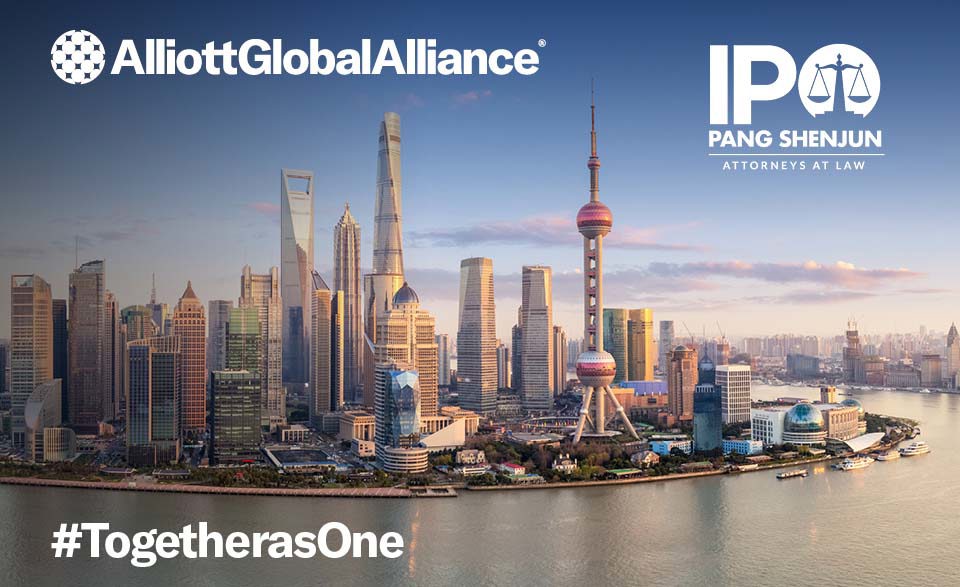Navigating Bankruptcy and Market Exit in China: A Primer for International Lawyers
04 August 2025
Jian Huang, Counsel at IPO Pang Shenjun, Alliott Global Alliance’s representative law firm in Shanghai Province looks at China’s legal framework governing bankruptcy and corporate restructuring.

China's evolving economic landscape continues to attract international investment and fosters significant business activities, reflecting the country's increasingly mature and sophisticated market conditions. As market dynamics shift, companies may strategically adjust their presence, restructure their businesses, or seek to exit the Chinese market for various reasons, including mergers, acquisitions, or repositioning strategies. It is crucial for international legal practitioners advising such companies to have a foundational understanding of China’s legal framework governing bankruptcy and corporate restructuring.
Enterprise Bankruptcy Law
The legal framework for bankruptcy in China is primarily governed by the Enterprise Bankruptcy Law, effective since 2007. This law provides comprehensive guidance for insolvency proceedings, focusing on orderly debt resolution, safeguarding creditor interests, and facilitating effective asset management. Companies encountering financial difficulties can voluntarily apply for bankruptcy proceedings when they meet certain conditions, such as inability to pay due debts and having liabilities exceeding their assets. Additionally, creditors may initiate bankruptcy procedures to protect their interests when debts are overdue and unpaid.
Once the bankruptcy application is accepted by a competent People's Court, interest on outstanding debts ceases to accrue, limiting further financial exposure for creditors and guarantors. The court appoints a bankruptcy administrator responsible for managing the debtor's assets, conducting evaluations, and overseeing liquidation or reorganization processes. This structured legal approach ensures transparency, predictability, and equitable treatment of creditors, aligning with international best practices.

However, exiting the Chinese market is not solely associated with bankruptcy or financial distress. Often, international companies depart through strategic mergers and acquisitions, reflecting the maturity and attractiveness of the Chinese market. Such strategic exits are common as multinational corporations adjust their global strategies and domestic Chinese enterprises or other international companies seize opportunities for expansion or increased market share. These transactions provide beneficial outcomes, optimizing resource allocation and enhancing market competitiveness.
Emphasize Due Diligence
International legal counsel assisting clients in navigating these transitions should emphasize thorough due diligence and proactive stakeholder engagement. Effective preparation involves meticulous financial, legal, and operational assessments to identify optimal exit pathways, whether through insolvency procedures or strategic acquisitions. Early and transparent communication with creditors, regulators, and potential acquirers significantly smoothens the transition process. Moreover, engaging local legal expertise is invaluable due to nuanced regulatory requirements and cultural practices that can influence procedural efficiency and compliance.
Corporate exits from China, whether voluntary or due to market forces, should be viewed positively as part of the natural evolution and sophistication of China's business environment. Such market dynamics, including strategic corporate restructuring and acquisitions, underscore the resilience and continued attractiveness of China's economy. They represent normal business strategies rather than market contraction or decline, highlighting China's ongoing integration into the global economic framework and the robustness of its legal and financial systems. International lawyers equipped with this fundamental understanding can effectively guide their clients through these complex yet strategic transitions, enhancing their clients' competitive positions in the global market.
Author Jian Huang is a licensed attorney in both China and California, USA, specializing in dispute resolution, mergers and acquisitions (M&A), and corporate governance
About IPO Pang Shenjun Law Firm:
IPO Pang Shenjun is Alliott Global Alliance’s representative law firm in Shanghai Province, China and has a strong reputation for its outstanding service delivery of helping many companies across a wide spectrum of industries to establish and grow their operations. Established in the early 1990s, the firm now has associates throughout China and affiliate partners in over 100 countries. Read more.
